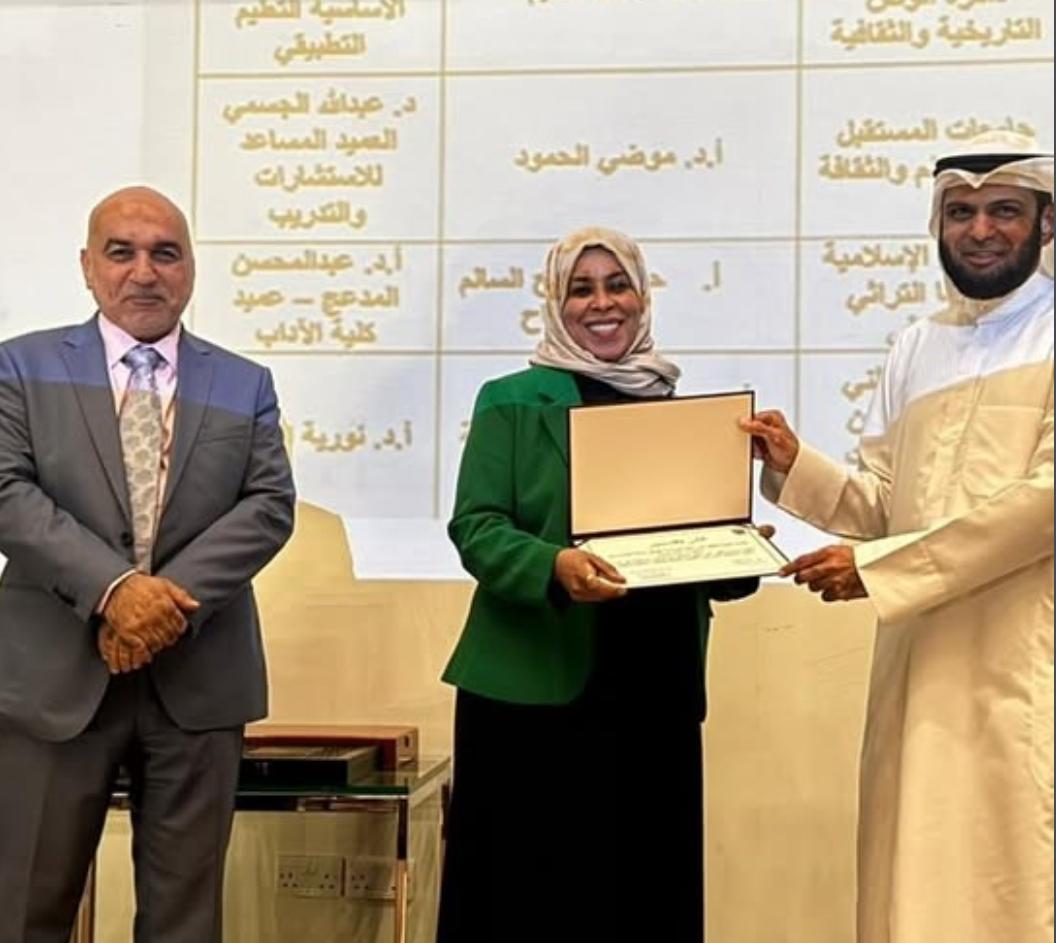
Under the patronage of Acting Dean of the Faculty of Arts, Prof. Abdul Mohsen Al-Tabtabaei, the Cultural Committee of the Department of Arabic Language and Literature organized a closing ceremony to honor all participants in the cultural seasons: 2024/2023 and 2025/2024, with a large attendance of students, professors, and university staff.
The event began with a welcoming speech delivered by Dr. Bashayer Al-Otaibi, the event’s host. and Dr. Ahmed Al-Faraj spoke on behalf of the Cultural Committee’s chairperson, Prof. Noura Al-Roumi, reviewing the committee’s efforts where Kuwait is selected as the Arab Capital of Culture and Arab Media for 2025. This reflects Kuwait University’s sense of responsibility in fostering intellectual integration and its significant academic role in institutional solidarity to support the state’s vision of reviving and developing its rich cultural heritage. The speech expressed the academic community’s genuine pride in this well deserved achievement, positioning Kuwait as a leading cultural beacon in the Arab world. The Cultural Committee of the Department of Arabic Language and Literature also held a lecture titled “The Image of Women in the Poetry of the Gulf’s Blind Poets,” managed by Dr. Abdullah Al-Sarhan and presented by Dr. Ahmed Al-Faraj.
Dr. Ahmed Al-Faraj began his lecture by dividing the poetic movement in the Gulf into three stages: poets from the pre-oil era (such as Imam Noor Al-Din Al-Salimi from Oman), experienced poets (such as Saqr Al-Shabib from Kuwait), and poets from the post-oil era (such as Ibn Hussein from Saudi Arabia).
He then reviewed poetic texts from each era separately to illustrate the dynamic portrayal of women, explaining that the mention of women in Al-Salimi’s poetry was minimal and indirect, while the theme of women became more prominent and explicit during the era of Saqr Al-Shabib. In his poetry, women appeared in three forms: satire of the wife, educating women, and the imaginary woman, opening up with the social and romantic issues.


 Colored
Colored Grayscale
Grayscale

